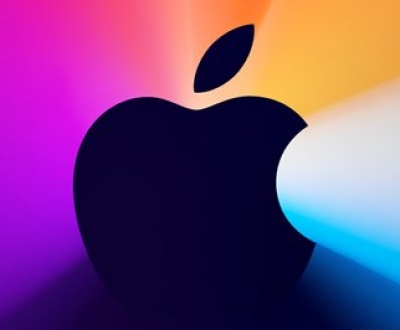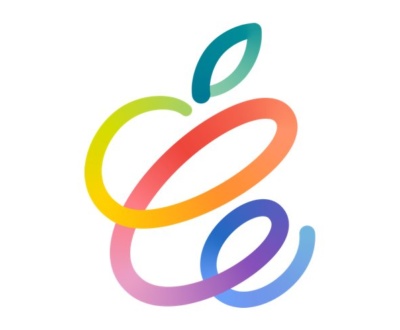As we penned only a few days ago Apple and Qualcomm’s legal battle headed to court on Monday in sunny San Diego and then they bizarrely ceased fighting on Tuesday after both parties signing a multi year deal.
It is clear that Apple came to their senses that Qualcomm is the only go to company that can produce 5G chips and the license to use the fundamental underlying technology. Also it is hard to argue that $15 is too high a price for a key component in an iPhone while charging $1000 for a phone.
Key Points:
- Apple and Qualcomm settled a royalty and patent dispute that went to trial this week in San Diego, California.
- As part of the settlement, all legal action worldwide between the two companies will be dropped, and Apple will buy Qualcomm chips again for iPhones.
- Qualcomm said it expected a $2 increase in earnings per share and its stock (QCOM) rose over 20%.
Apple and Qualcomm have settled their royalty dispute, the companies announced in a press release.
Qualcomm and Apple® today announced an agreement to dismiss all litigation between the two companies worldwide. The settlement includes a payment from Apple to Qualcomm. The companies also have reached a six-year license agreement, effective as of April 1, 2019, including a two-year option to extend, and a multiyear chipset supply agreement.
The settlement includes a payment from Apple to Qualcomm as well as a chipset supply agreement, suggesting that Apple will buy Qualcomm chips for future iPhones. The companies did not say how much the payment will be.
Apple come to their senses.
“This was a major win for Qualcomm as fears of a loss in the courts was a major overhang on the name with Apple going after this IP issue full steam ahead,” Wedbush Securities analyst Dan Ives said. “A settlement is a surprise to investors as ultimately Apple realized this was more about two kids fighting in the sandbox and they have bigger issues ahead with 5G and iPhone softness rather than battling Qualcomm in court.”
The two companies started proceedings in a trial in federal court in San Diego on Monday, which was expected to last until May. Both sides were asking for billions in damages. The antitrust case was originally filed by Apple in early 2017.
The complicated legal battle, centered around modem chips and related disputes, has been raging in courts around the world for the past two years, including an earlier trial between Qualcomm and the U.S. Federal Trade Commission.
For years, Apple bought modem chips from Qualcomm, but it objected to Qualcomm’s prices and requirement that any company using its chips would also pay licensing fees for its extensive patent portfilio.
Apple argued that Qualcomm was abusing its position as one of the only suppliers for cellular technology, and Qualcomm contended that Apple was withholding payments that the two companies had hammered out as part of a royalty agreement.
According to Qualcomm, the new license between the two companies is six years, with a two-year option to extend. It includes a one-time payment from Apple to Qualcomm. The amount of the payment was not disclosed.
In November, Qualcomm CEO Steve Mollenkopf said that he believed that the two companies were on the “doorstep” to settling. Apple CEO Tim Cook contradicted him shortly after, saying that Apple hasn’t been in settlement discussions since the third calendar quarter of 2018.
New iPhone models released in 2018 used Intel modem chips instead of Qualcomm’s technology.
Analysts had previously said that the dispute between Qualcomm and Apple could slow down Apple’s plans to support next-generation 5G networks. Qualcomm is one of the top suppliers of chips that can connect to 5G networks. The agreement opens up the possibility that Apple could release a 5G iPhone sooner than expected with Qualcomm’s modem technology.
Unknown
There are still many interesting questions that need to be resolved before we fully understand the big picture, especially from an investing perspective.
- Why did Apple suddenly choose to settle? For the last two years, Apple has acted like a company that was prepared to go all the way in its fight against Qualcomm. It withheld all royalty payments to Qualcomm (multi B$) while the litigation was ongoing, it switched to using Intel’s modems exclusively for the iPhone XS, and it started shopping around for other modem suppliers. Back in November, Qualcomm CEO Steve Mollenkopf said that the two companies were “on the doorstep of finding a resolution,” only for Apple’s attorney to respond saying that “there haven’t been talks in months.” Given the animosity that’s built up between the two companies, it’s strange that the lawsuit would fizzle out on its second day. What happened, or was about to happen, that made Apple drop everything and agree to a settlement?
- How did Intel factor into Apple’s decision? Hours after Apple and Qualcomm announced their settlement, Intel said that it would exit the 5G mobile modem business. It’s highly unlikely that announcing this on the same day as the settlement was a coincidence. Over at Daring Fireball, John Gruber theorizes that either Apple settled with Qualcomm because Intel was getting out of the 5G smartphone modem business or that it happened the other way around and Intel exited the market after Apple and Qualcomm settled. Gruber guesses that it’s the former, but Bloomberg says the opposite, suggesting that Apple had already decided that Intel’s 5G modems weren’t up to snuff.
- What are the terms of the deal? We know that the agreement will contribute $2 a share to Qualcomm’s earnings, but we don’t know the specifics of how much Apple has agreed to pay now, or how much it will pay in the future for Qualcomm’s chips and patents. An exclusivity deal on modems is unlikely, given that the EU fined Qualcomm $1.2 billion for a similar agreement it had with Apple in the past because it locked other chipmaking competitors out of the market. But even if the new deal doesn’t demand complete exclusivity, it could theoretically still include other commitments from Apple, which may impact which chipsets it decides to buy. In the past, Apple has split modem orders between Qualcomm and Intel.
- When will we see the first 5G iPhone? Currently, the majority of 5G smartphones that have been announced, including the Samsung Galaxy S10 5G, use modems from Qualcomm, and it seems like Apple will have few options other than to join them if it wants to release a 5G iPhone anytime soon. With just five months to go until Apple is due to release this year’s iPhones, it’s unlikely that it will have such a 5G modem integrated in that time, leading Bloomberg to predict that we’ll see our first 5G phone from Apple in 2020. Honestly, the most surprising thing here is that, despite everything that’s happened, this timing is more or less unchanged from what we were hearing back in December. Apple is rarely the first to embrace new technologies, but 2021 would be late to release a first 5G phone, even by its standards.
- When will Apple build its own 5G modems? Apple doesn’t want to solely rely on Qualcomm for its 5G modems. We already know it’s had conversations with Samsung and MediaTek, and Huawei has said it’s “open” to selling chips to the company (although specific talks between the two companies have yet to take place). But in the longer term, Apple might be planning to develop its own 5G chips, which could be helped by buying Intel’s modem IPnow that Intel’s getting out of the business. One analyst quoted by Bloombergsaid that Apple might be ready to manufacture its own modems in as few as three years.
About us and this blog
We are a digital marketing company with a focus on helping our customers achieve great results across several key areas.
Request a free quote
We offer professional SEO services that help websites increase their organic search score drastically in order to compete for the highest rankings even when it comes to highly competitive keywords.









